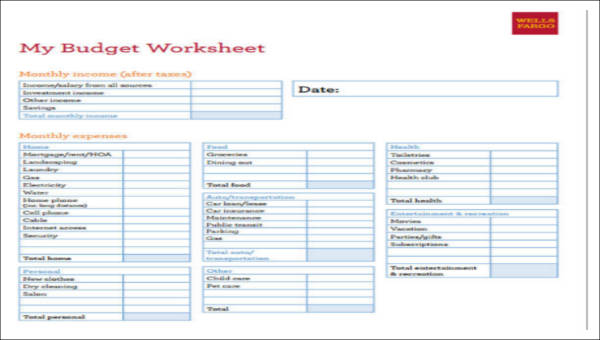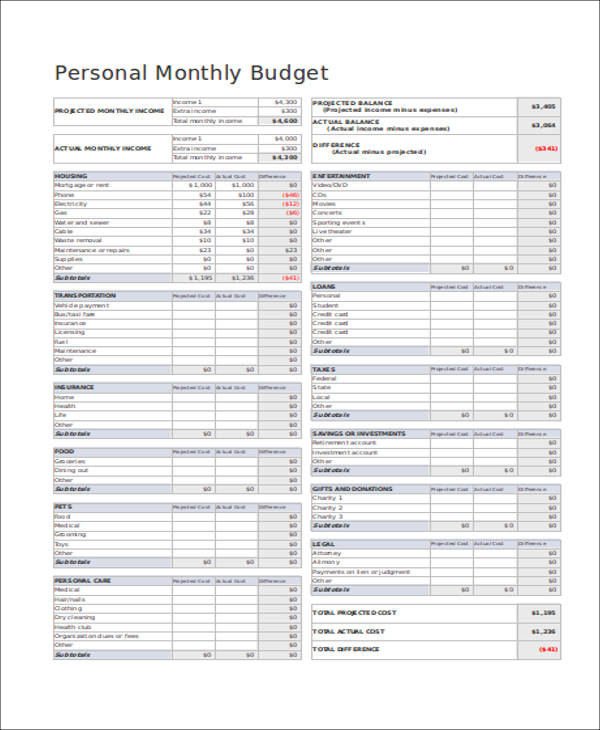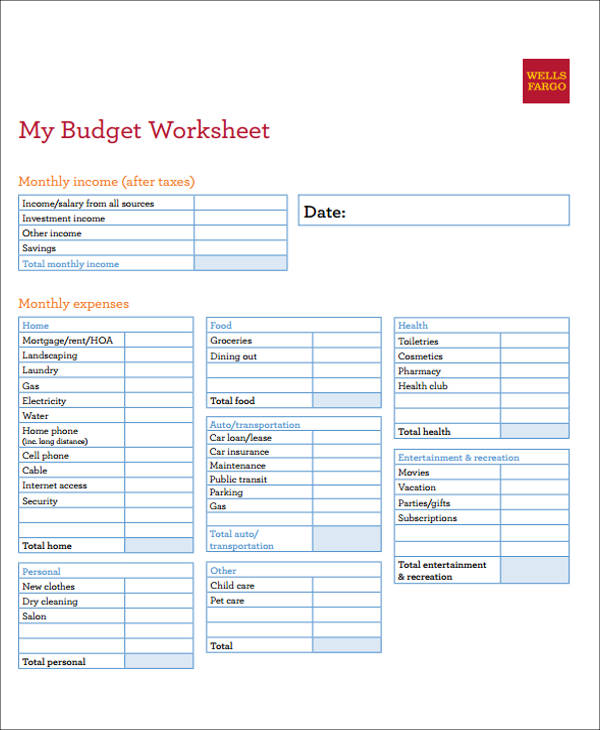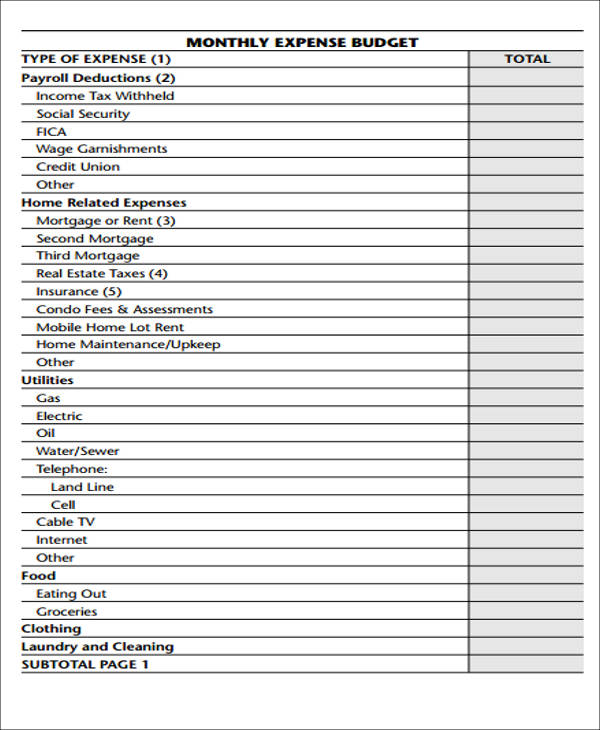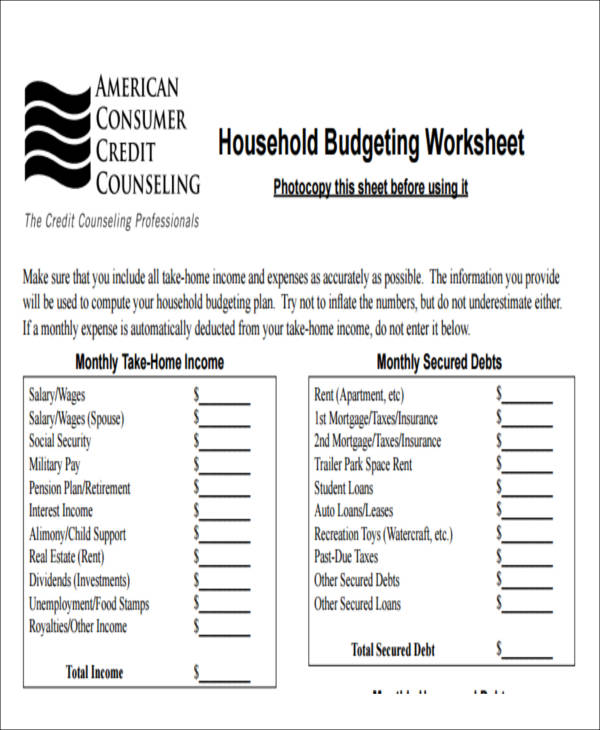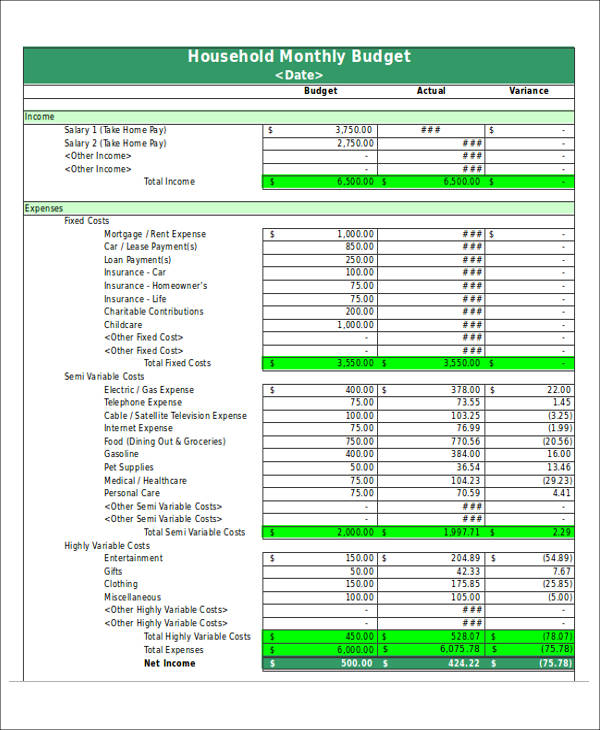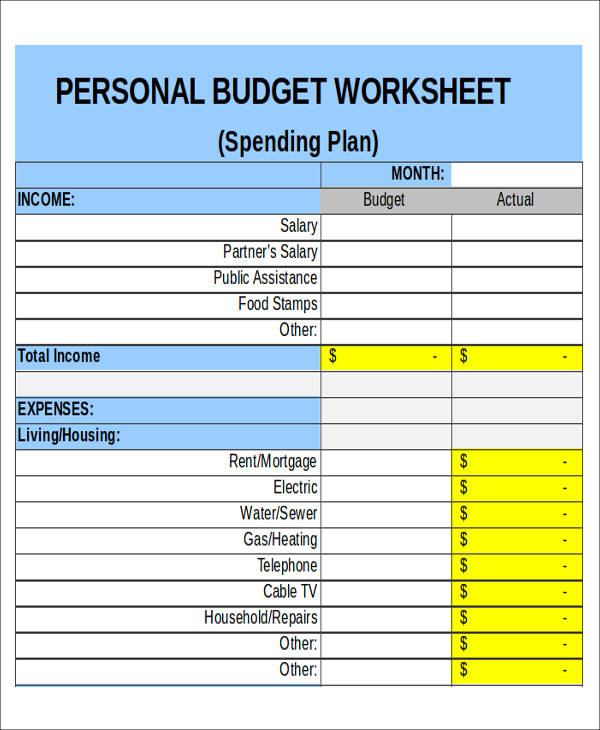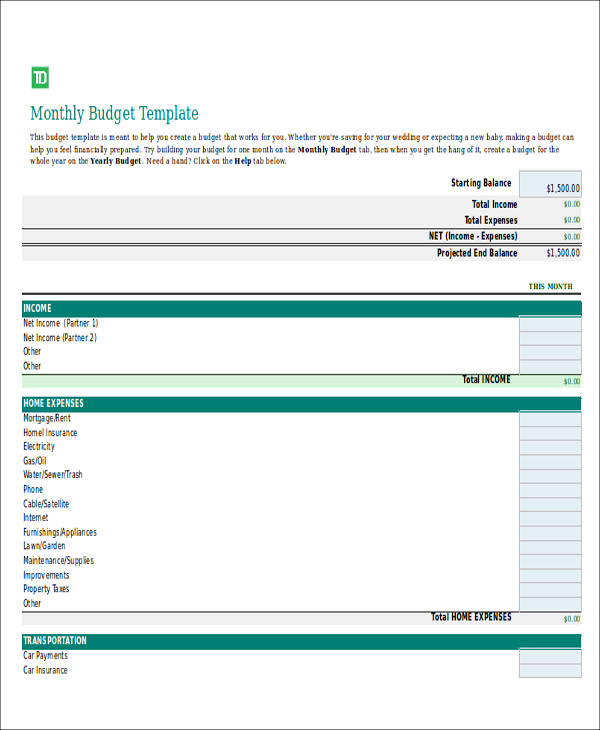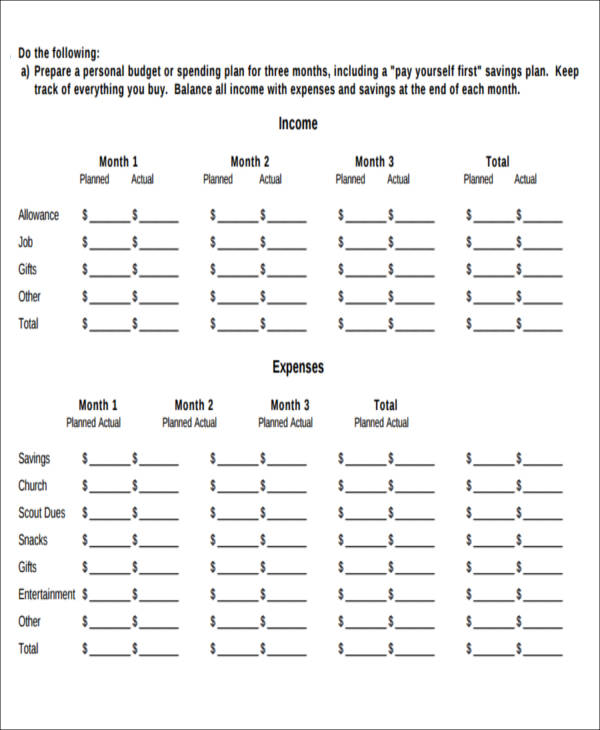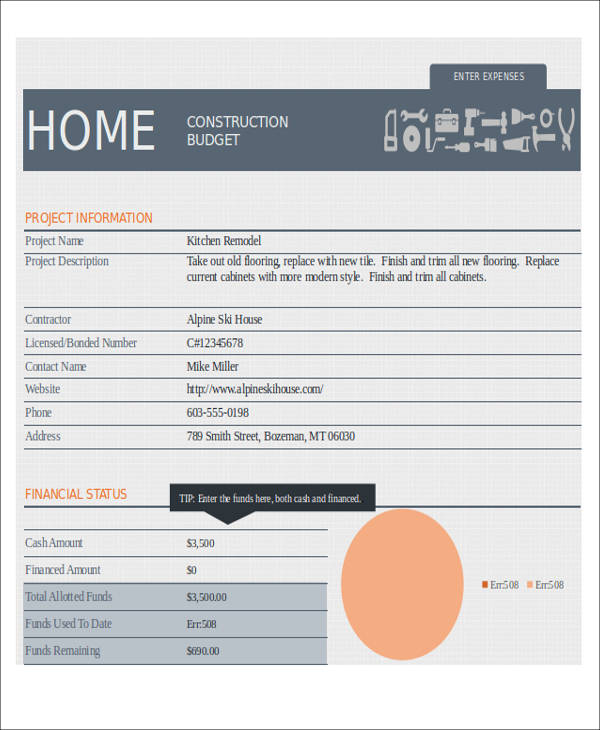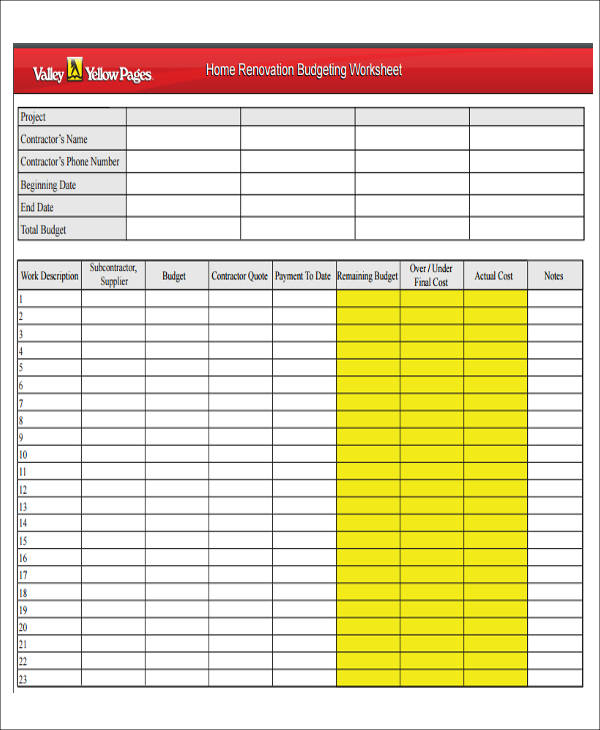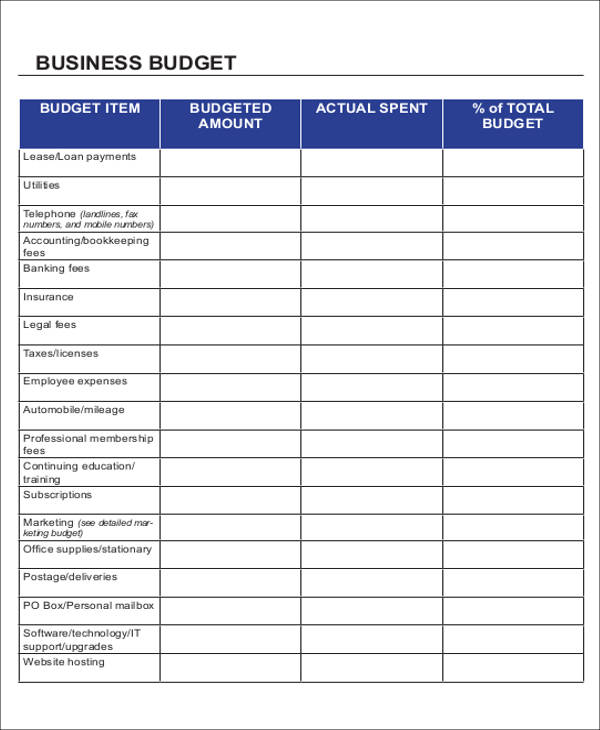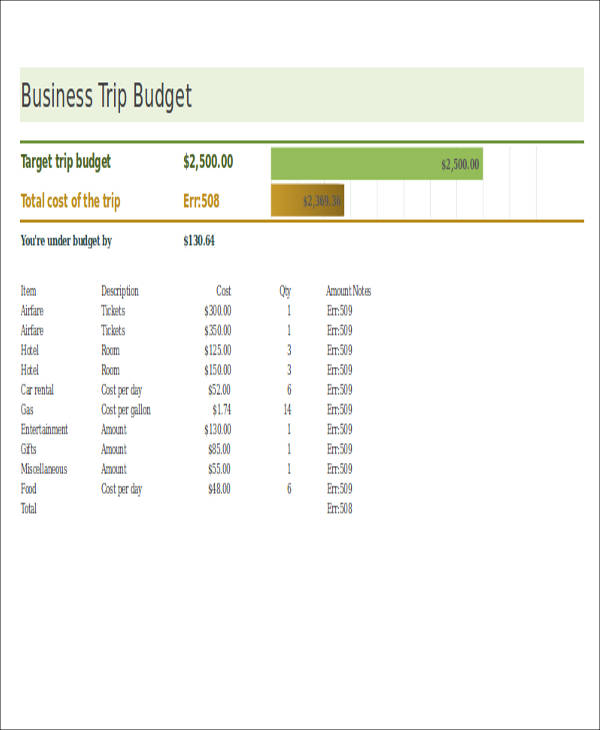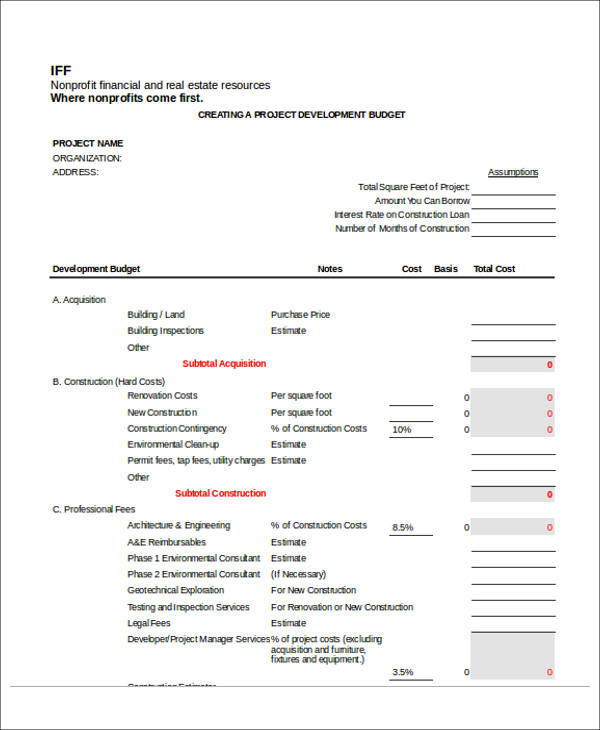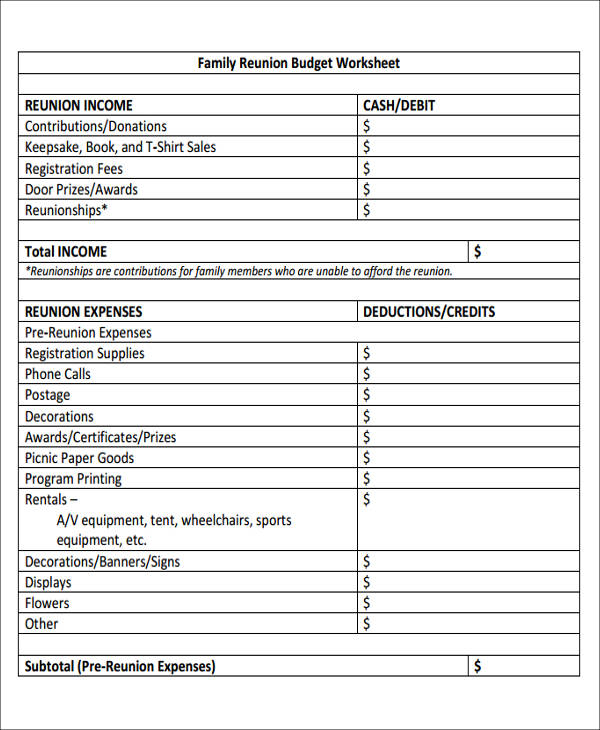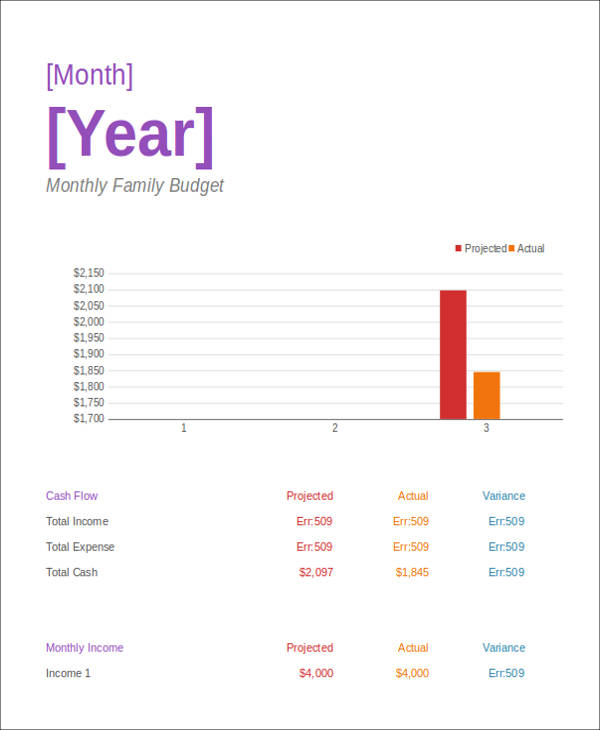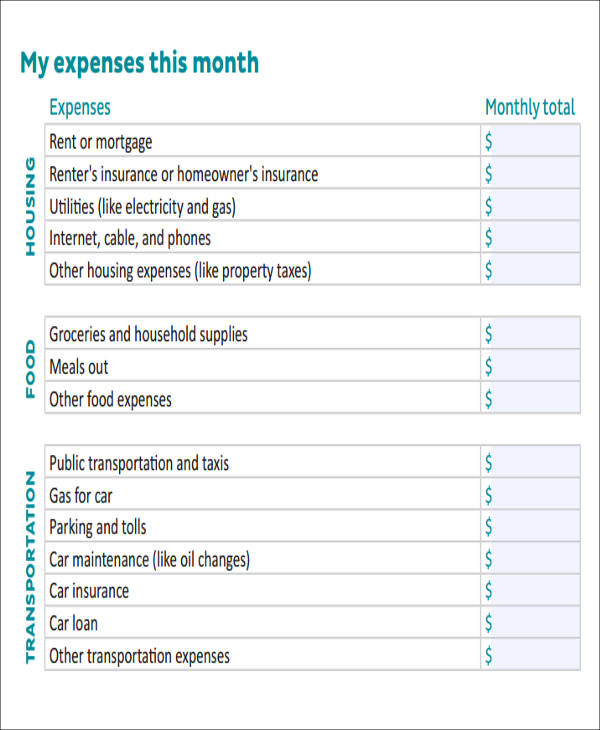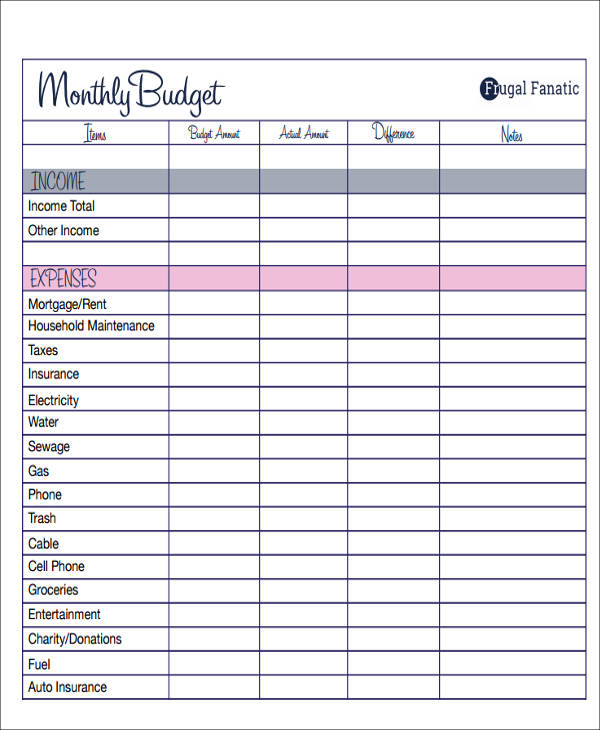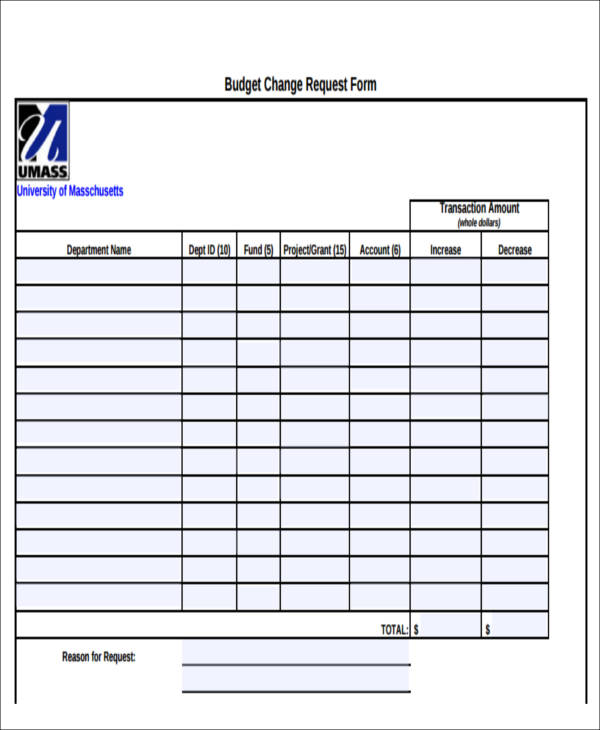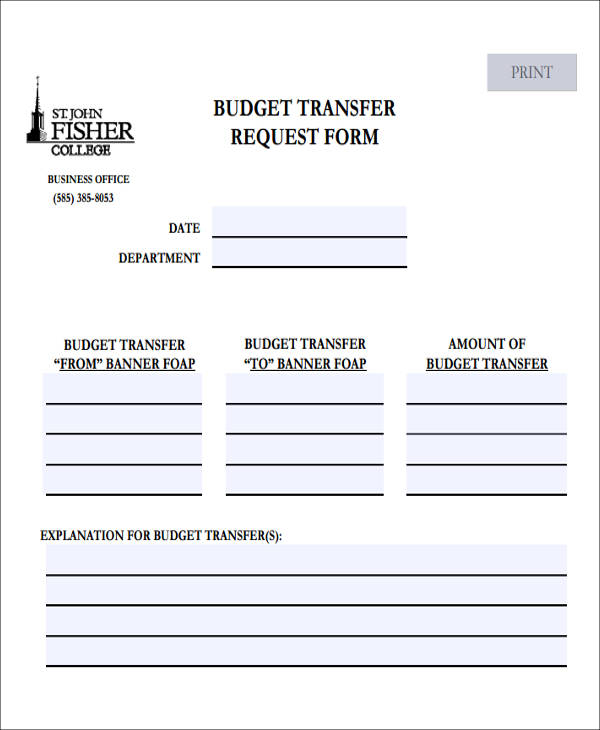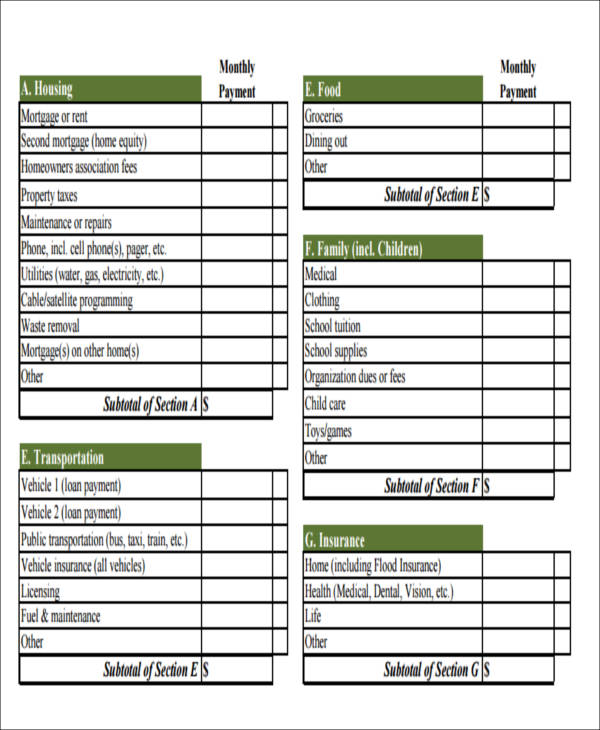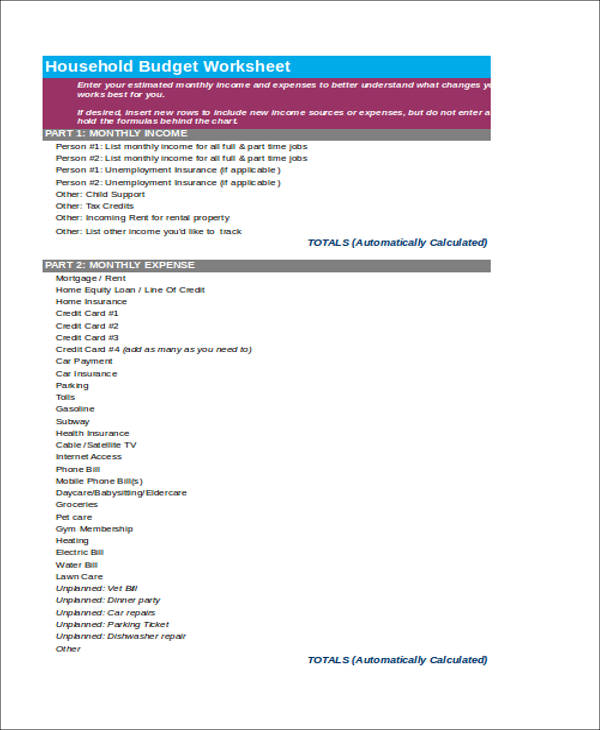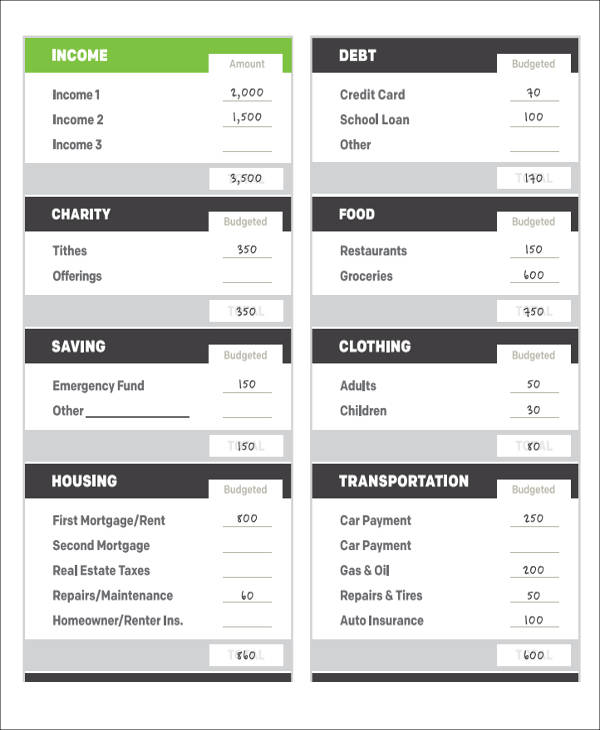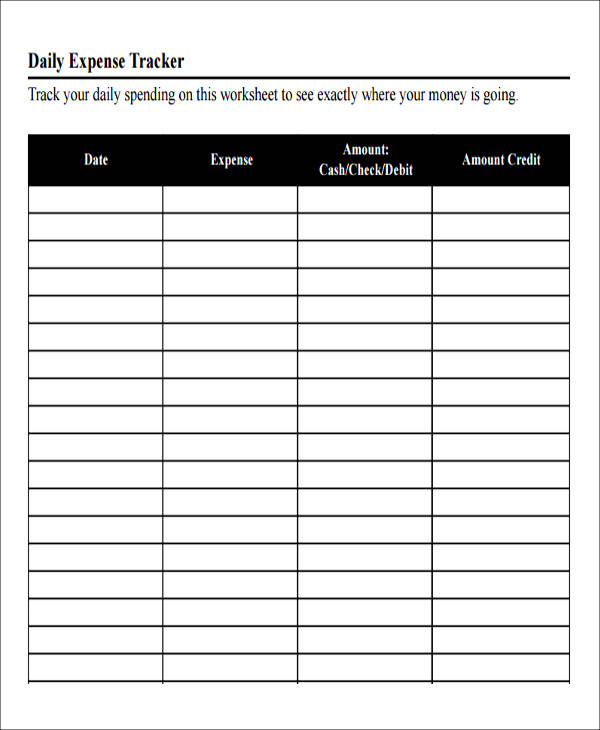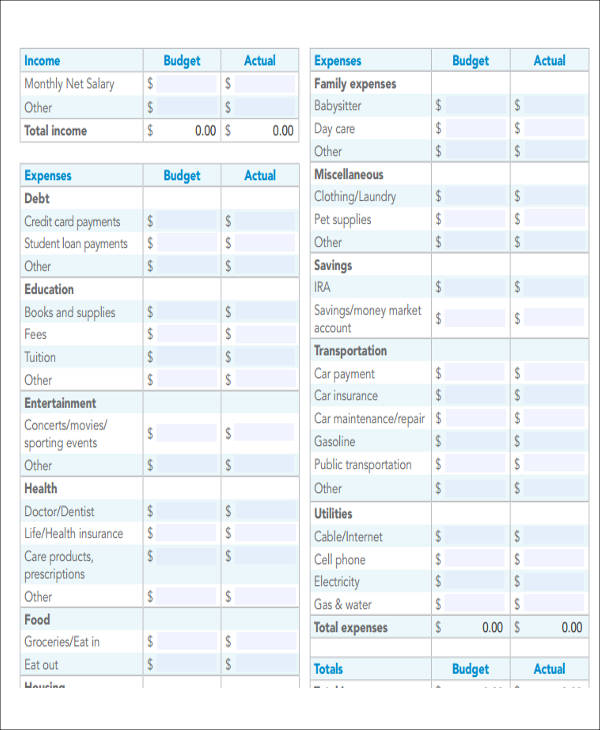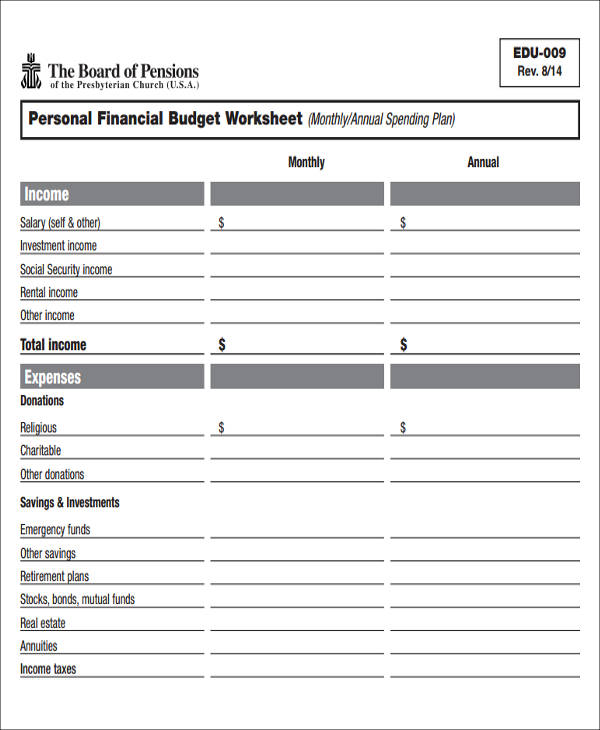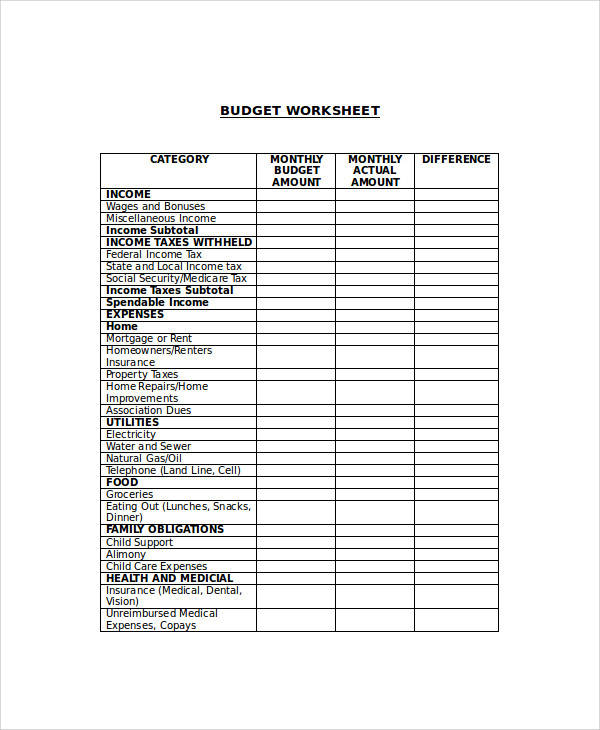Budgeting or making a budget plan is a smart and useful tool that can help you control your expenses, plan for your future, pay off debts or prevent you from having debts, and allows you to set aside money for savings. However, human being as we are, the ability to control ourselves from unnecessary spending can be quite a challenging feat. Budgeting is not as easy as it seems.
Our Budget Forms can help tackle the difficulties of making a budget. Having a budget form allows you to physically see the exact amount of money that you have available, the things you essentially need to pay for, and the amount of money left afterward. You can choose from our wide array of budget form samples that range from household budget forms to event budget forms.
Monthly Budget Forms
Personal Monthly Budget Form
Monthly Budget Form Sample
Monthly Expenses Budget Form
Household Budget Forms
Household Budget Form in PDF
Monthly Household Budget Form
What Is a Budget Request Form?
A budget request is a formal document in a form of a letter you submit asking management or an organization to provide funds for a project or event. This is intended to have a clear overview of how much money you need and how each item is being justified to be included on your budget request.
How Do You Write an Effective Budget Request?
- Write the full name of the person you are sending the request to including full contact information of the recipient like phone numbers and email address.
- Cite the specific budget request like the name of the project or event. Don’t forget to cite how you appreciate the ongoing business relationship you have with the person that you are submitting the budget request and that you intend to continue with the relationship.
- Give an overview of the project or event and explain why funding is necessary. Make a brief but worthwhile overview and write it in such a way that the recipient is convinced the request is worth considering.
- Attach a detailed budget proposal for consideration and include your statement on contacting you anytime should there be any questions, and don’t forget to thank the recipient for his time and consideration for the request you’ve submitted.
- Write your closing statement by again expressing your appreciation followed by your full name and full contact information.
- Create the detailed project overview, its cost, and project description in a new page with itemization and charts to give a full overview of the whole project and its overall purpose.
- Print your cover letter and budget proposal and sign the cover letter before submitting everything to the recipient.
You can view our Budget Request Forms from our website to use as a reference. You can also download and use them for your convenience.
Personal Budget Forms
Personal Budget Form
Personal Monthly Budget Expense Form
Personal Management Budget Form
Home Budget Forms
Home Construction Budget Form
Home Renovation Budgeting Form
Business Budget Forms
Small Business Budget Form
Business Trip Budget Form
Tips for Creating a Budget
1. Track Your Incoming and Outgoing Cash
Monitoring your receipts from past purchases will help you make an average assumption of how much cash you put out every month so that you can figure out which item is excessively expensive and determine the possibilities of cutting back on those expenses.
2. Categorize Your Expenses
One category should be the expenses that are important or the items that are essentially needed, while the other one contains extra expenses or items that you do not necessarily need unless you have extra cash for it. You can also view our expense forms and Expense Sheets for this.
3. Be Flexible with Extra Expenses
Look through your list of extra expenses and mark those that you do not immediately need to purchase or pay immediately.
4. Add up the Total Amount for Both Categories
By using an expense form, a budget form, or a tracker, add up the total cost of expenses for both extra and essential expenses. Get the separate total for your extras and a separate total for your essentials.
5. Take the Total Amount of the Cost for Essentials from Your Income
Deduct the total amount of essential expenses from your total income and if you still have extra, see if it is able to cover for the expenses listed in your extra expenses.
6. Learn to Cut Back
If you still have extra money left after covering both essential and extra expenses, then good for you! You can use that extra money to add into your savings. However, if covering your essential costs alone already gives you a negative amount, then look into your list again and see where you can cut back.
One important thing that you need to keep in mind when creating a budget is to learn how to live within your means. What good does it do if you are up to date with the latest trends but yet are drowning in a pile of debt?
Construction Budget Forms
Sample Construction Budget Form
Family Budget Forms
Family Reunion Budget Form
Family Monthly Budget Form
Printable Budget Forms
Printable Budget Form in PDF
Printable Blank Budget Form
Printable Monthly Budget Form
Budget Request Forms
Detail Capital Budget Request Form
Budget Change Request Form
Budget Transfer Request Form
What Is Budget Allocation?
A budget allocation is intended for money that is specifically set aside for a particular project. You can also view our sample Community Service Forms for more community-related templates.
What Is Household Budget?
Crafting a budget for a household is not as easy as it sounds, especially if you are working on a very slim budget with a lot of mouths to feed. However, taking comfort in the management and planning of finances helps to extend the reach of your money and may even allow you to allocate some funds for savings. A Household Budget Worksheet or our budget form samples can help you create a financial plan for you and your family so that you can maximize your finances and allocate it to more useful expenditures.
Basic Budget Forms
Family Budget Form
Basic Household Budget Form
Blank Budget Forms
Blank Monthly Budget Form
Blank Personal Daily Budget Form
Financial Budget Forms
Monthly Financial Budget Form
Personal Financial Budget Form
Home Budget Form Example
Guidelines for Budget Preparation
- Understand why you are budgeting. You will need to have a motive behind your budget planning.
- Focus on a goal. It could be a long-term or a short-term goal. You can use these goals to motivate you to stick to your budget.
- Do not overestimate. The same holds true for underestimating your salary. Be aware of how much you actually make. Do not try to underplay it or overplay it when making your budget. Be aware of how much you actually earn in a month, minus taxes and other deductions.
- Be realistic. If you’re new to budget planning, do not expect yourself to automatically be able to save at least 80% of your month’s wages. Be realistic and take baby steps.
- Have a savings account. Open up a savings account that is different from your payroll account. You can put in your extra money into your account each month, or you can purposefully set aside an amount each month to place into your savings. This way, you can see your money grow into what could be your future savings.
You can download from our wide array of financial forms that range from budget forms to Money Order Forms, to List of Expenses forms.
Related Posts
Agreement Form Samples & Templates
Vehicle Inspection Forms Samples & Templates
Sample Employee Advance Forms
Sample Child Travel Consent Forms
Sample Testimonial Request Forms
Sample Employee Details Forms
Sample Divorce Forms
Sample Attestation Forms
Employee Performance Appraisal Form Templates
FREE 9+ Sample Presentation Evaluation Forms in MS Word
FREE 10+ School Admission Form Samples & Templates in MS Word | PDF
FREE 30+ Patient Consent Form Samples in PDF | MS Word
FREE 10+ Sample Sign Off Form Templates in PDF | MS Word
FREE 11+ Sample Medical Consultation Forms in PDF | MS Word
FREE 8+ Sample Donation Forms in PDF | MS Word
